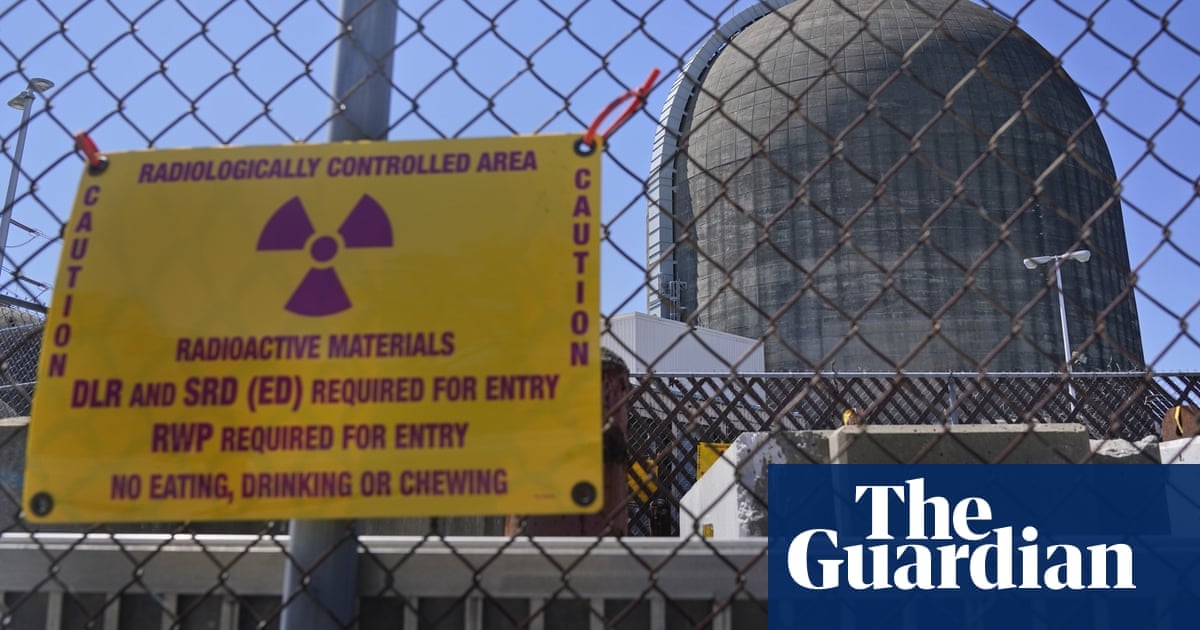Shuttering of New York facility raises awkward climate crisis questions as gas – not renewables – fills gap in power generation
When New York’s deteriorating and unloved Indian Point nuclear plant finally shuttered in 2021, its demise was met with delight from environmentalists who had long demanded it be scrapped.
But there has been a sting in the tail – since the closure, New York’s greenhouse gas emissions have gone up.
Castigated for its impact upon the surrounding environment and feared for its potential to unleash disaster close to the heart of New York City, Indian Point nevertheless supplied a large chunk of the state’s carbon-free electricity.
Since the plant’s closure, it has been gas, rather then clean energy such as solar and wind, that has filled the void, leaving New York City in the embarrassing situation of seeing its planet-heating emissions jump in recent years to the point its power grid is now dirtier than Texas’s, as well as the US average.



Except it already has. It’s cheaper (hence a lower electricity price) to build new wind or solar than it is to continue operating a coal power plant. And because they’re renewable the only real costs are the initial construction and some fairly easy maintenance. Without the fuel costs the real price of electricity will go down over time. A rooftop solar system will pay for itself after 7-10 years and from then on the electricity is essentially free.
Meanwhile, when Vogtle 3 came online last year electricity prices in Georgia went up 3% because they passed along the cost of construction to customers.
Plus, building a nuclear power plant takes decades. Vogtle 3 started planning in 2006, and took a decade to build and didn’t come online until last year. In the meantime the price of solar dropped by 75%, and we’ve added 38 GW of solar capacity. Wind went down in price about 25% and added 130 GW of capacity.
So I’d rather wait a decade to tear down the gas turbine generators - or power them with biofuel somehow - than wait for a nuclear plant to come online.
I’ve checked and rechecked my power bill. Definitely not cheaper.
I live in the Great Lakes, where essentially it is cloudy 90% of the time from October-April. My home has a relative roof that faces east and west, not south. Rooftop solar does not pay for itself here so easily. And that is besides the regulations the power companies have placed on it, essentially eliminating even net metering and only giving you pennies for excess power production.
The planet can’t wait a decade while we build out renewables. We have to keep what nuclear we have going at least.
I guess the regulatory environment in PA is nicer, because I can buy 100% renewable electricity for around 3¢/kWh cheaper here than the standard price for dirty energy from the utility. I don’t have rooftop solar either and can’t because of a big tree, but I still benefit from more renewables.
But I agree that if we’re going to have nuclear be a significant component of greenhouse gas reductions we’re going to have to keep the ones we have. Mostly because new ones won’t produce anything but carbon emissions for 10 years while they’re being built, while solar and wind will start producing power even before the projects are finished.
P.S. The fact that we don’t have offshore wind on the Great Lakes is a waste of good cold air.
The Great Lakes presents a difficult problem for offshore wind. Since it is fresh water and not salt water, you have to deal with far more ice. Ice beats the shit out of anything left on the lake. Though, with climate change going the way it is, maybe it won’t be a problem at all.
Yeah, here in Ohio things are run by Republicans. The party of small government wants to block most renewable development in the state. And renewable energy is certainly no cheaper here. They have also helped utilities more to more fixed cost billing that makes solar (and also electrifying in place of natural gas) not economically feasible for many.
And I’m not sure picking a supplier that promises renewables, anyway. It’s not like you get to pick and choose the electrons that come to your home. You get whatever is on the grid.
There was a pretty big scandal about companies promising 100% renewable and not giving it a few years back, so they cracked down on that and I’m confident that I’m at least paying for renewable electrons to get put onto the grid.
PA does a lot of things bad (cough PennDOT cough) but it does a good job of electricity supply and is pushing renewables hard.